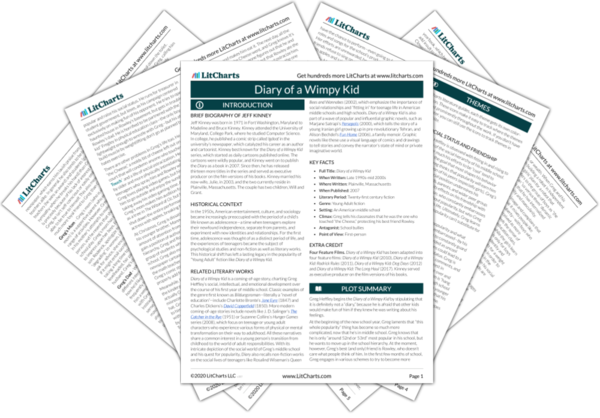Diary of a Wimpy Kid is a coming-of-age story, charting Greg Heffley’s social, intellectual, and emotional development over the course of his first year of middle school. Classic examples of the genre first known as
Bildungsroman—literally a “novel of education”—include Charlotte Bronte’s
Jane Eyre (1847) and Charles Dickens’s
David Copperfield (1850). More modern coming-of-age stories include novels like J. D. Salinger’s
The Catcher in the Rye (1951) or Suzanne Collins’s
Hunger Games series (2008), which focus on teenage or young adult characters who experience various forms of physical or mental transformation on their way to adulthood. All these narratives share a common interest in a young person’s transition from childhood to the world of adult responsibilities. With its intricate depiction of the social world of Greg’s middle school and his quest for popularity,
Diary also recalls non-fiction works on the social lives of teenagers like Rosalind Wiseman’s
Queen Bees and Wannabes (2002), which emphasize the importance of social relationships and “fitting in” for teenage life in American middle schools and high schools.
Diary of a Wimpy Kid is also part of a wave of popular and influential graphic novels, such as Marjane Satrapi’s
Persepolis (2000), which tells the story of a young Iranian girl growing up in pre-revolutionary Tehran, and Alison Bechdel’s
Fun Home (2006), a family memoir. Graphic novels like these use a visual language of comics and drawings to tell stories and convey the narrator’s state of mind or private imaginative world.
